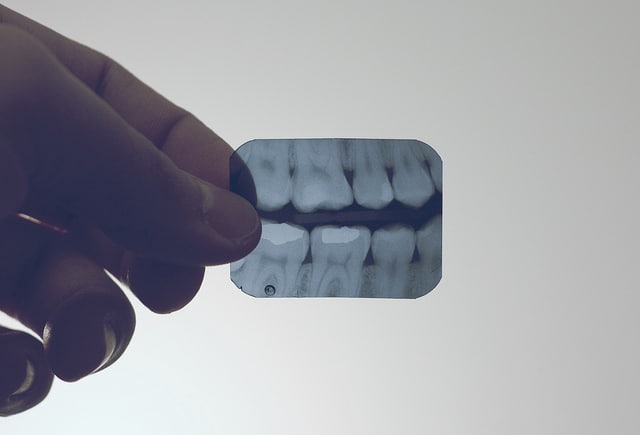To Give Fluoride or Not To Give Fluoride (that is the question)
- Safety and the use of L-Theanine in Children - October 19, 2025
- 4 ways your child may not tolerate cow’s dairy: allergy, milk protein sensitivity, cerebral folate deficiency, and lactose intolerance - January 3, 2024
- 5-hydroxytryptophan (5-HTP) and the “feel good” neurotransmitter serotonin - October 4, 2023

Here in Missoula, Montana we don’t have fluoride in our water supply, so the common recommendation of dentists and pediatricians is to give children and infants a fluoride supplement. I get asked this question a lot: “should I give my child supplemental fluoride?”
Like many things in medicine, the answer is not (in my opinion, anyways), a simple “yes” or “no.”
Last year a big meta-analysis was published titled “Developmental Fluoride Neurotoxicity: A Systematic Review and Meta-Analysis.” As you can guess from the title, this study found that children exposed to high levels of fluoride had evidence of neurological impairment. This means that kids with high fluoride exposure had lower IQ’s compared with children exposed to low fluoride levels.
Now before we jump to conclusions and go on a whole anti-fluoride tirade, let’s talk about the limitations of the study and make some clarifications. First, the difference in IQ amounted to less than a half a point (0.45, to be exact). Secondly, the levels of fluoride were generally much higher than in the U.S. – this study was a meta-analysis of many studies of Chinese rural populations, where fluoride occurs in untreated groundwater, and can reach levels far, far beyond what the EPA limits is safe in the United States. For reference, the EPA allows a maximum of 4.0 mg/L of fluoride in water, with a recommended level of 0.7-1.2 mg/L. The “high” levels of fluoride in the study ranged from 0.88 mg/L up to 11.5 mg/L. That is generally much more fluoride than here in the U.S. (though many of the studies referenced did include levels that are considered “acceptable” or even “recommended” by the EPA). Lastly, and this is a big one, some of the children in the studies were also exposed to arsenic or lead. The researchers did account for this and performed a second analysis, excluding the studies where children were co-exposed – the result was very similar. Still, it is possible that some of the children in the other studies were co-exposed as well.
Even with these limitations – the evidence appears to be pretty strong that fluoride causes at least some neurological impairment. One study showed fluoride deposition in the pineal gland (a part of the brain responsible for melatonin secretion), though the conclusions are unknown. Another study showed increased oxidation in the brain of rats exposed to high levels of fluoride. The authors of the meta-analysis also cited other research showing that the developing brain is susceptible to damage by fluoride. One was a mouse study that shows damage in the hippocampus (the “memory” center of the brain). Another rat study showed that exposure at 1 part per million of fluoride causes visible changes in the brain’s shape and structure. 1 part per million is generally the accepted “safe” (and recommended) dose! These are controlled animal models so we can know that it wasn’t due to, say, arsenic or lead, that caused brain changes.
The authors of the study state:
Fluoride exposure to the developing brain, which is much more susceptible to injury caused by toxicants than is the mature brain, may possibly lead to permanent damage.
So, end of story, no fluoride drops, right? (You should know Dr. Erika by now – it is never the end of the story!)
Whenever I talk with my patients about whether or not to implement a therapy we always talk about the risks versus the benefits. Fluoride supplements are the same. Yes, there is now documented research showing neurological impairment (on the very big “con” side of the graph). So what about the benefits?
I spoke with Dr. Susan Tiede, Dr. April Foster and Dr. Alison Grover of Missoula Pediatric Dentistry yesterday to hear their perspective.
According to my dental colleagues, there is a host of evidence that fluoridating water or taking fluoride supplements decreases the risk of getting cavities (“caries” in the medical/dental world) by a lot. I mean a lot. (The American Dental Association claims a 20-40% reduction in overall caries when entire populations are fluoridated.)
Sometimes I think that we in the naturopathic community overestimate the negative effects of fluoride and underestimate the negative effects of dental caries. Dr. Tiede states: “remember that dental caries are the number one chronic disease in children!” Dr. Grover: “Children who get decay in primary teeth by the age of six are 14 times more likely to get decay in permanent teeth.” We know that there is a big link between dental and periodontal disease and overall health (with increased rates of cardiovascular and autoimmune disease later in life). Not to mention that quality of life is significantly decreased in someone with caries – pain can cause inattention in school, poor nutrition, etc, etc.
The problem is that the children who we are most concerned about the negative effects of fluoride – those with neurological problems like ASD or developmental delays – are the same ones who are the most at risk for caries. Many children with autism or developmental delays also have strong food aversions or preferences that put them at risk. Some children with sensory processing disorders have aversions to toothbrushing or flossing, further worsening the problem. Some of these kids can end up with a mouthful of cavities needing to be filled or extracted. When it gets this severe most kids will end up needing sedation during the procedure – or even general anesthesia in many cases. Having a child put under sedation or general anesthesia pretty much defeats the purpose of declining fluoride. The risks of anesthesia are real and can lead to irreversible neurological injury (not to mention the small but real risk of death).
So does that mean that Dr. Erika is jumping on the fluoride supplement bandwagon?
No.
This is a decision that each family gets to make for their own child. I think the risks of fluoridating or not fluoridating are real.
So what are our options here? Drs. Tiede, Foster and Grover always give their patients the option of internal fluoride or alternatives. As Dr. Tiede puts it: “There is no question that the primary benefit of fluoride is topical.” Not taking the internal fluoride means you may miss the chance at strengthening the developing tooth, BUT – topical fluoride is very effective at preventing caries. They tell their patients that any child over two can have a pea-sized amount of fluoride-containing toothpaste. Children under two can use “just a smear” of fluoride toothpaste on their teeth. This can be incredibly helpful to reduce caries, especially in at-risk children.
There is a lot more to say about preventing tooth decay in children. My next post will be about other (non-fluoride) ways to prevent caries.
photo credit: davidseitzjr via photopin cc








Angie Walker
October 16, 2013 at 3:46 pmHow about FCLO and butter oil or vitamin K2 instead of flouride? Plus then your getting your healthy A,D, and K vitamins too.
Dr. Erika Krumbeck
October 21, 2013 at 9:06 pmAngie – you jumped the gun on me! Coming up this week is a post about other things we can do to strengthen teeth! (I see you’re a fan of Weston A. Price?)
http://sisobear.wordpress.com/
May 16, 2014 at 9:16 amEveryone loves it when folks get together and share views.
Great site, stick with it!
Brittney
December 2, 2014 at 11:15 amThank you!!! This is so great to have both sides!! I feel as though the medical field is getting too biased towards whatever the CDC says and doesn’t respect mothers who have genuine concerns about risks. Thanks so much!!
Pingback: Fluoride Supplement for Infants | Sea, Green, Sparkles
November 11, 2015 at 8:22 amDelta Lynch
October 4, 2016 at 7:42 amI am just reading this thread. I live in a rural area with well water. Our elementary school gives each child a flouride tablet every day. I know another mother who stopped this 2 years ago. I thought she was being over the top. After reading g this and other articles I am now confused. Any help or opinions appreciated.
Angela Marks
January 5, 2017 at 6:28 pmI am studying for my registered dietitian exam and was learning about fluoride supplementation for infants. I knew it was somewhat controversial, so I began researching online. I am so glad that I found your post. Very unbiased presentation of the pros and cons and allows the parent to make the final decision. I am so pleased that you added the internal versus topical use as the closing statement.
Thanks!
Angela